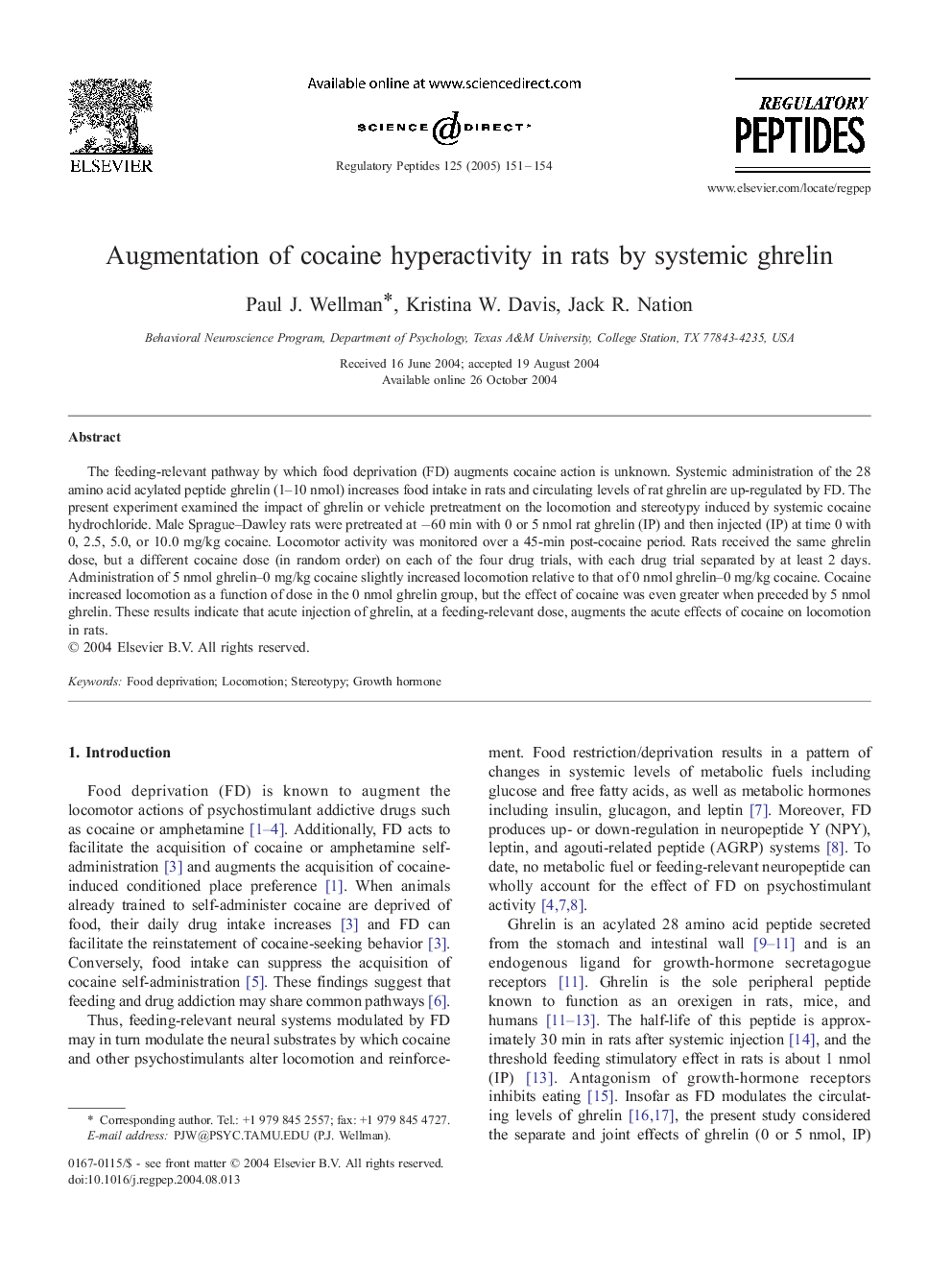| Article ID | Journal | Published Year | Pages | File Type |
|---|---|---|---|---|
| 9894513 | Regulatory Peptides | 2005 | 4 Pages |
Abstract
The feeding-relevant pathway by which food deprivation (FD) augments cocaine action is unknown. Systemic administration of the 28 amino acid acylated peptide ghrelin (1-10 nmol) increases food intake in rats and circulating levels of rat ghrelin are up-regulated by FD. The present experiment examined the impact of ghrelin or vehicle pretreatment on the locomotion and stereotypy induced by systemic cocaine hydrochloride. Male Sprague-Dawley rats were pretreated at â60 min with 0 or 5 nmol rat ghrelin (IP) and then injected (IP) at time 0 with 0, 2.5, 5.0, or 10.0 mg/kg cocaine. Locomotor activity was monitored over a 45-min post-cocaine period. Rats received the same ghrelin dose, but a different cocaine dose (in random order) on each of the four drug trials, with each drug trial separated by at least 2 days. Administration of 5 nmol ghrelin-0 mg/kg cocaine slightly increased locomotion relative to that of 0 nmol ghrelin-0 mg/kg cocaine. Cocaine increased locomotion as a function of dose in the 0 nmol ghrelin group, but the effect of cocaine was even greater when preceded by 5 nmol ghrelin. These results indicate that acute injection of ghrelin, at a feeding-relevant dose, augments the acute effects of cocaine on locomotion in rats.
Related Topics
Life Sciences
Biochemistry, Genetics and Molecular Biology
Biochemistry
Authors
Paul J. Wellman, Kristina W. Davis, Jack R. Nation,
